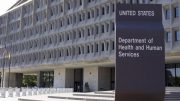GetEQUAL Reacts to Today’s SCOTUS Ruling on Hobby Lobby Case
Statement from Heather Cronk, GetEQUAL Co-Director:
“Today’s ruling sends an unfortunately clear message that the Supreme Court of the United States thinks more highly of private, for-profit corporations than individuals. While we’re disappointed in this ruling because of the implications for women across the country whose access to contraception is being attacked, we’re equally disappointed because of the implications for LGBTQ individuals. The same entities that are fighting women’s access to healthcare are also fighting LGBTQ equality—and this ruling simply sets the stage for future efforts to reduce the ability for individuals to make their own decisions about their lives and about their bodies. Today’s ruling sets the stage for further and wider challenges to the idea that employers should treat all of their employees and potential employees equally, and opens the possibility for employers to refuse to provide employees with health insurance that covers HIV or AIDS medication, blood transfusions, anti-depressants, and all manner of other life-saving care.
We must re-double our commitment to push back on the dangerous efforts to write discrimination into law under the guise of ‘religious liberty.’ These efforts, such as the religious discrimination law in Mississippi that will go into effect tomorrow, are smokescreens for religious bigotry. GetEQUAL will continue to call out religious discrimination when and where it happens, and will continue to work closely with our friends in the reproductive justice movement to win our collective liberation from government-sanctioned oppression.”
GetEQUAL is a national grassroots organization whose mission is to empower the lesbian, gay, bisexual, transgender, and queer (LGBTQ) community and our allies to take bold action to demand full legal and social equality, and to hold accountable those who stand in the way. For more information go to www.getequal.org. You can also follow GetEQUAL on Facebook at www.facebook.com/getequal or on Twitter at www.twitter.com/getequal.
Today, the United States Supreme Court issued a decision in Burwell v. Hobby Lobby Stores, Inc. that limits the provision of the Affordable Care Act (ACA) that requires all health insurance plans to include preventative healthcare, including contraception coverage.
The Court agreed with for-profit corporation Hobby Lobby that the Religious Freedom and Restoration Act (RFRA) applies to the activities of closely-held corporations. This means that corporations with a small number (five or fewer) of majority shareholders can claim a right to be exempt from the contraceptive coverage mandate and not be required to provide birth control under their insurance plans.
This ruling is harmful to women and has potentially harmful implications for the lesbian, gay, bisexual, and transgender (LGBT) community. Access to affordable contraception is a crucial issue for lesbian and bisexual women and the transgender community, and this ruling will negatively affect access to quality care for all people.
Statement by NCLR Legal Director Shannon Minter, Esq.:
“The majority’s holding that closely held corporations can claim religious liberty protections designed for individuals—and can rely on those protections to avoid complying with generally applicable laws—is a dangerous and radical departure from existing law that creates far more questions than it answers and shows a callous disregard for the health care needs of women workers. Thankfully, however, the majority recognized that even under its sweeping new rule, corporations cannot rely on claims of religious liberty to evade non-discrimination laws. That limitation is extremely important and means that employers cannot exploit today’s decision to justify non-compliance with laws that prohibit discrimination against LGBT people and other vulnerable groups, but we will need to be vigilant to make sure that principle is respected and enforced.”
Statement by Gary Buseck Interim Executive Director, Gay & Lesbian Advocates & Defenders
Today’s Supreme Court decision in Burwell v. Hobby Lobby Stores, Inc. can only be seen as bad news for women’s health. There can be no sugar-coating that. We extend our support to all women, including women in our LGBT community who may be affected by potential restricted access to reproductive healthcare, and to our allied organizations who work so hard to protect that access.
Anticipating the ruling, LGBT people feared that a broad decision could open the door to outright discrimination and firings as the expression of religious belief. The majority opinion avows a much narrower reach of its decision. It notes that the government has a compelling interest in creating equal opportunity in the workplace while prohibitions on discrimination are precisely tailored to achieve that “critical goal.” In such circumstances, exemptions from the law are not allowed. In addition, Justice Kennedy’s concurrence – representing the fifth vote needed by the majority – was clear that religious exercise may not “unduly restrict other persons, such as employees, in protecting their own interests, interests the law deems compelling.”
While the decision today makes clear that there is no opening for demands to be exempt from non-discrimination laws, we are very aware of the need to be vigilant. Attempts to discriminate against LGBT people are increasingly being articulated as religious expression, as in the case of GLAD’s client Matt Barrett. His offer of employment was withdrawn by Fontbonne Academy, a religiously-affiliated school, when he noted on a form that his spouse was a man. We have sued on Matt’s behalf, and we will continue to fight for him and against any and all attempts to justify discrimination against LGBT people.
Through strategic litigation, public policy advocacy, and education, Gay & Lesbian Advocates & Defenders works in New England and nationally to create a just society free of discrimination based on gender identity and expression, HIV status, and sexual orientation.
WASHINGTON—In a decision with far-reaching ramifications for women’s health, the Supreme Court today ruled that the owners of certain for-profit corporations can legally impose their religious views on their employees, denying them access to essential health care.
“The Court has sanctioned discrimination against women,” said Elizabeth Taylor, executive director of the National Health Law Program (NHeLP). “By providing some companies an opt-out of federal law, the court has singled out women’s health and permitted these bosses to impose their beliefs on their employees’ health care–absolutely unacceptable.”
The Court heard challenges brought by Hobby Lobby Stores, Inc., an arts and crafts store, and Conestoga Wood Specialties Corp., a cabinetmaker, both of which claimed that the Affordable Care Act’s (ACA) requirement to offer their employees coverage for birth control violates their religious freedom. The Court ruled that the Religious Freedom Restoration Act (RFRA) applies to the companies, and the ACA’s contraceptive coverage requirement is a substantial burden on their religious beliefs. In doing so, the Court found that the Administration could have chosen other means of ensuring widespread contraceptive coverage. As a result, the ACA infringes upon these owners’ rights and the companies do not have to comply with the ACA’s birth control requirement.
“The ACA was designed to have insurance companies cover essential health benefits, including contraceptives. This is the principle behind quality insurance,” said Taylor. “We should not be parsing out and excluding specific services just because women rely on them and their bosses object to their availability. The result of the Court’s decision means that, either the door is open to other RFRA challenges that could result in similar decisions when applied to services such as immunizations, anti-depressants and blood transfusions, or the Court is twenty years behind science and evidence, and thinks that contraception is not basic health care.”
As outlined in NHeLP’s amicus brief and referenced by Justice Ruth Bader Ginsburg in her dissent, public programs should not be asked to step in for private businesses. Public funding for family planning services, Title X in particular, is a critical safety-net, helping those most in need. It is not designed to absorb the unmet needs of women who already have insurance.
“Women have been fighting for more than 20 years to get access to affordable contraceptives,” said Susan Berke Fogel, NHeLP’s director of reproductive health. “In an unprecedented ruling, the Court upended history by allowing select employers to stand in the way. Bosses must not be allowed to interfere with women’s health—full stop.” [pullquote]”Women have been fighting for more than 20 years to get access to affordable contraceptives,” said Susan Berke Fogel, NHeLP’s director of reproductive health. “In an unprecedented ruling, the Court upended history by allowing select employers to stand in the way. Bosses must not be allowed to interfere with women’s health—full stop.” [/pullquote]
CONTRACEPTION is part of the established standards of medical care and backed by major medical academies in the U.S. and Western Europe. Contraception is crucial not only in preventing and planning pregnancies, but for women managing chronic diseases–conditions such as diabetes, heart disease and lupus, which disproportionately impact women of color. NHeLP’s groundbreaking report, Health Care Refusals: Undermining Quality Care for Women discusses the public health implications of ideological and political attacks on care. Health coverage decisions should be based on patient need, the gold standard of medical practice.
The Court’s ruling concerns a federal statute, the Religious Freedom Restoration Act, and not state law. As a result, today’s ruling does not affect the protections that women currently hold in states with state laws requiring equitable coverage between men and women.
NHeLP is analyzing the real impact on women and how they will access contraceptives as a result of this decision, and will be releasing a detailed analysis in the coming days.
The National Health Law Program protects and advances the health rights of low income and underserved individuals. The oldest non-profit of its kind, NHeLP advocates, educates and litigates at the federal and state levels.
[Compiled from Various News Releases]








